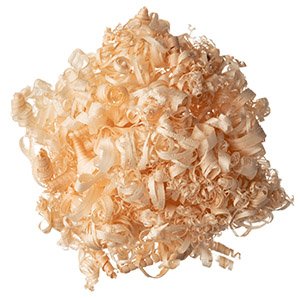The ZELDA project aims to develop a new generation of entirely bio-based alternatives to chemical pesticides for crop protection.
Through a zero-waste biorefinery concept, ZELDA will fully valorise lignocellulosic biomasses such as birchwood, grape and tomato residues, and wheat straw into safe, sustainable formulations that combine cellulose, hemicellulose and lignin, to produce immune-eliciting products.
Developed under a Safe and Sustainable by Design (SSbD) framework, ZELDA biosolutions will mimick a natural photogenic process to strengthen plant defences against fungal and bacterial pathogens, while promoting plant growth and acting directly as microbicides as secondary effects.
ZELDA also integrates digital and AI-based precision farming tools to optimise field application, reduce waste, and enhance environmental performance.
The efficacy od these bio-based solutions will be validated from lab to field on tomato, grape, and cereals across different Europe’s pedo-climatic agricultural regions.


SO1. Develop an innovative enzyme-based process to isolate native and oxidised cello-oligos and hemi-oligos from lignocellulosic biomass as broad-spectrum effective immune elicitors against microbial pathogens.

SO2. Develop an enhanced crop protection formulation based on a mix of cellulose- and hemicellulose-derived oligosaccharides and lignin-derived products, within a zero-waste biorefinery approach.

SO3. Validate the production technology in an industrially relevant environment and assess the economic viability of the developed products.

SO4. Quantify the efficacy of ZELDA products on key EU crops in controlled environment phytotrons and analyse the impact across various EU geographical and pedo-climatic regions through in-field tests.

SO5. Develop an enhanced and harmonised framework for the assessment of efficacy, toxicity and sustainability that takes into consideration regulatory requirements, the EC SSbD framework, and soil health elements.

SO6. Develop smart solutions for efficient and cost-effective product delivery by combining AI-based risk prediction models and early detection systems with precision farming and robotics.

SO7. Establish the conditions for EU farmers’ transition to sustainable agriculture by promoting knowledge exchange, evaluating their interest in new products and processes, and creating a continuous feedback loop with bio-based industries.

Zero-waste and circular use of resources: ZELDA will valorise 100% of lignocellulosic biomass, from birchwood, grape, tomato and wheat residues, into valuable products, demonstrating a fully circular, zero-waste biorefinery model.

Lower environmental footprint: The project will reduce greenhouse gas emissions along the entire life cycle of plant protection products and cut product use by 40–75% per treatment through precision delivery technologies.

Health and ecosystem protection: ZELDA’s biodegradable, low-toxicity products will help replace hazardous pesticides, protecting biodiversity, farm workers, and consumers.

Sustainable local value chains: By creating four new bio-based supply chains from renewable feedstocks, ZELDA will support rural employment, strengthen local bioeconomies, and contribute to the EU’s 50% pesticide reduction target by 2030.

Support to EU environmental and food policies: ZELDA directly supports the Farm to Fork Strategy by delivering effective, 100% bio-based alternatives to hazardous pesticides; contributes to the Zero Pollution Action Plan through solutions with a low toxicological impact on aquatic systems and soil biota; and aligns with the EU Green Deal by reducing the life-cycle carbon footprint of crop protection products, moving towards climate neutrality.
The project consortium includes 13 partners covering 6 countries. However, the project ensures that all the pedoclimatic regions are taken into account when assessing ZELDA’s products efficacy in 5 countries, thanks also to the involvement of 4 additional affiliated entities.

ITB is a no-profit organisation bringing together biotech organisations with strong expertise in quantitative sustainability metrics. In ZELDA, ITB will completement the SSbD framework with LCA, TEA and s-LCA analyses and will also contribute to shaping the exploitation strategy by analysing market and sustainability trends.
Kineton is a technology and engineering company. In ZELDA, the company leads the experimental validation of the automated inspection, treatment planning and delivery system.
A3D is a technology company specialising in drone-based automation and smart spraying systems. Its expertise focuses on drone inspection, on-board mixing, and precision delivery of agro-products. In ZELDA, A3D develops the drone-based inspection platform capable of on-spot mixing and tailored spraying of the treatments.
UNIMORE participates through its Automatic Control Lab of the Engineering Department. Through its expertise in data-driven modelling, risk analysis, and control algorithms for robotics, UNIMORE leads the digital cluster in ZELDA, developing risk models for autonomous crop field inspection, that ensures the accurate and efficient application of the new biobased products.
FVA is an Italian SME specialised in communication, dissemination, and stakeholder engagement for EU-funded research projects. In ZELDA, FVA ensures that project results are communicated effectively, supporting outreach, stakeholder uptake, and broad adoption of the project’s outcomes.
TIMAC AGRO Austria is an agronomic service provider with long-standing experience in plant nutrition and regulatory affairs. In ZELDA, it assesses the efficacy of the products with field tests in Austria, ensures strong engagement with local end-users, and implements the SSbD-based assessment framework thanks to its regulatory experience.
UGRAZ contributes to ZELDA through its working group on Sustainable Catalysis, a research team specialising in biomass valorisation and green chemistry. Within ZELDA, the group completes the biomass fractionation chain and transforms lignin-derived components into bio-surfactants for the project’s formulations.
ULB is a major Belgian research university and the coordinator of the ZELDA project, represented by the Crop Production and Biostimulation Lab and the Center for Research in Control Engineering and System Analysis. The labs bring technical knowledge in enzymology, plant physiopathology, with recognised experience in biostimulation, as well as in and advanced mathematical modelling and precision farming approaches. Besides coordinating the project, within ZELDA, ULB drives the development of the enzymatic processes that produce the oxidized cello- and hemi-oligos used in the formulations, while also contributing to AI-based modelling tools for precision application in the field.
BBEPP is an independent, state-of-the-art facility that operates from a laboratory level to a multi-ton scale, providing services for process development, scale-up and custom manufacturing of biobased products and processes. In ZELDA, BBEPP scales up the project’s technical components using its flexible platform of unit operations, producing sufficient quantities of materials for downstream testing and validation.
EAS offers exceptional technical knowledge, testing and regulatory consultancy to plant health and crop protection. Its main responsibilities in the ZELDA project include evaluating efficacy through field trials, conducting the safety assessment and developing the overall risk assessment, as well as identifying any potential regulatory bottlenecks that could hinder the registration of the potential active substances developed during the project. Its global network of field stations is involved through its 4 affiliated entities in Italy, Romania, Spain, and the Netherlands which will perform part of the field tests.
CICYTEX is a Spanish regional research centre dedicated to agricultural innovation and support to primary producers. It offers strong expertise in agronomic testing that will be used to assess the efficacy of ZELDA formulations at different levels, including field tests in Spain. This local centre also provides a direct contact with local primary producers, reinforcing the project connection with its end-users.
![]()
CIEMAT is a Spanish public research institution specialising in energy, environment, and advanced biomass technologies, represented in ZELDA by its Advanced Biofuels and Bioproducts Unit (BIOCAR). The unit has strong expertise in biomass transformation, pretreatment, and fractionation technologies. In ZELDA, BIOCAR supports the production of oligos with innovative fractionation technologies, thanks to their advanced infrastructure and deep knowledge in optimizing carbohydrate hydrolysis.
In Spain, ZELDA's solutions will be tested on wheat and grape crops by EAS Spain (affiliated entity) and CICYTEX.
In Italy, ZELDA's solutions will be tested on wheat crops by EAS Italy (affiliated entity).
In Austria, ZELDA's solutions will be tested on wheat crops by TIMAC AGRO.
Project coordinator: David Cannella
Project manager: Sara Daniotti
Project communication team: communication@zelda-project.eu